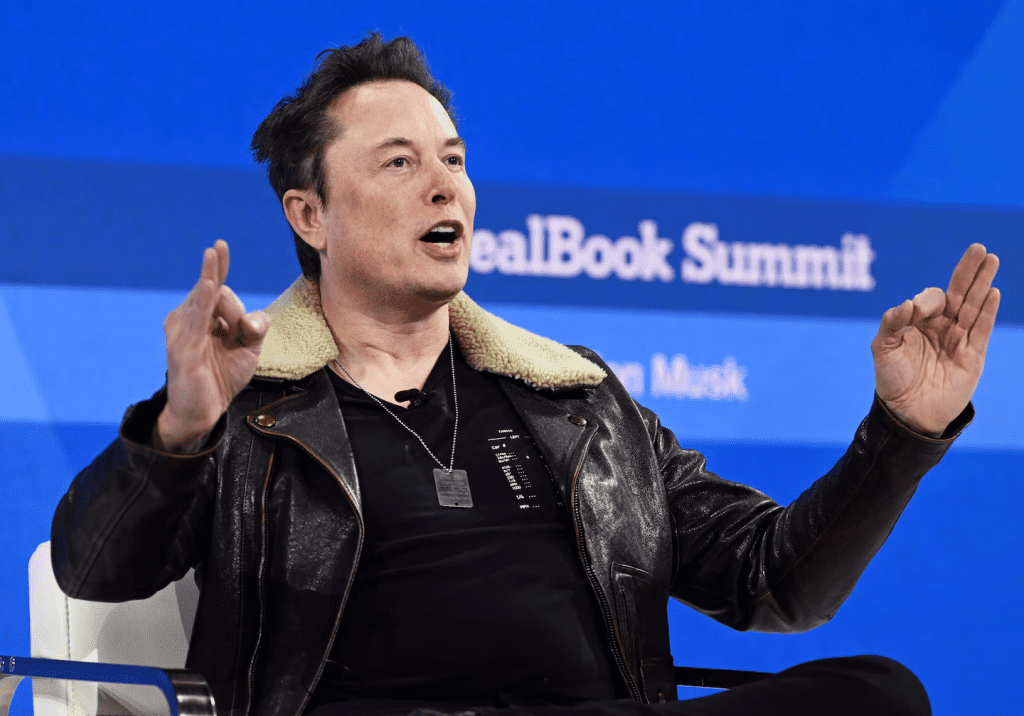Elon Musk has sparked widespread controversy with his recent statement calling for a boycott of biological men participating in women’s sports. His tweet, “The integrity of women’s sports must be preserved,” has ignited a fierce debate on the inclusion of transgender athletes in female sports categories, with strong opinions on both sides of the issue.

The statement comes at a time when sports around the world are grappling with complex questions of gender identity, equality, and fairness. Advocates for transgender rights argue that excluding transgender women from women’s sports is discriminatory and violates principles of equality. In contrast, critics, including Musk, raise concerns about the potential biological advantages that male-born athletes might retain even after transitioning, which they argue could skew the fairness of competition in women’s sports.
Musk’s comments have made him a lightning rod for both support and criticism. Supporters view his remarks as brave and assertive, believing he is voicing a truth that others are too hesitant to express. They see Musk as a defender of fairness and traditional values in sports, a sentiment shared by other prominent athletes who have voiced similar concerns over the issue.
However, Musk’s statement also attracted significant backlash. Critics accuse him of transphobia and insensitivity, arguing that his words contribute to discrimination against transgender individuals, a group that already faces marginalization. Some also contend that Musk, who lacks a background in gender studies or professional sports, is ill-equipped to address such a nuanced issue, leading them to dismiss his opinions as uninformed.
This is far from Musk’s first time making controversial remarks. The tech mogul is well-known for his outspoken views on a wide range of issues, from politics to environmental concerns. Yet, his stance on transgender athletes marks a particularly divisive moment, highlighting the growing tensions between freedom of speech and the demand for inclusivity in society.

The reactions to Musk’s statement also underscore a broader cultural divide, particularly in the United States, where the debate over transgender rights and sports participation has become highly charged. Several states have passed laws restricting transgender athletes from competing in women’s sports, while international bodies, like the International Olympic Committee, continue to face pressure to create policies that balance both inclusion and competitive fairness.
The question at the heart of this debate is not just about sports, but about values. What constitutes fairness in an era where gender identity is increasingly understood as fluid? Should sports rules evolve to reflect these changes, or should biological sex remain the primary basis for competition categories? Musk’s comments have reignited this philosophical debate, with no easy answers in sight.
Interestingly, some observers speculate that Musk’s statement may be a strategic move to divert attention from other controversies surrounding his businesses, such as Tesla and SpaceX. Whether or not this was his intent, the uproar surrounding his remarks has once again thrust him into the media spotlight.
The larger issue remains unresolved, and Musk’s supporters argue that his willingness to address uncomfortable and taboo subjects reflects the need for open, honest dialogue on difficult issues. Detractors, however, worry that his influence could drive society toward exclusionary policies, further deepening divisions in an already polarized environment.
Ultimately, Musk’s statement is more than just an opinion—it is a catalyst for further discussion. By taking a firm stand, he has reignited the conversation about how to balance fairness, inclusivity, and the evolving definitions of gender and identity. This debate is far from over, and Musk, as always, remains unfazed by the controversy he has stirred.


